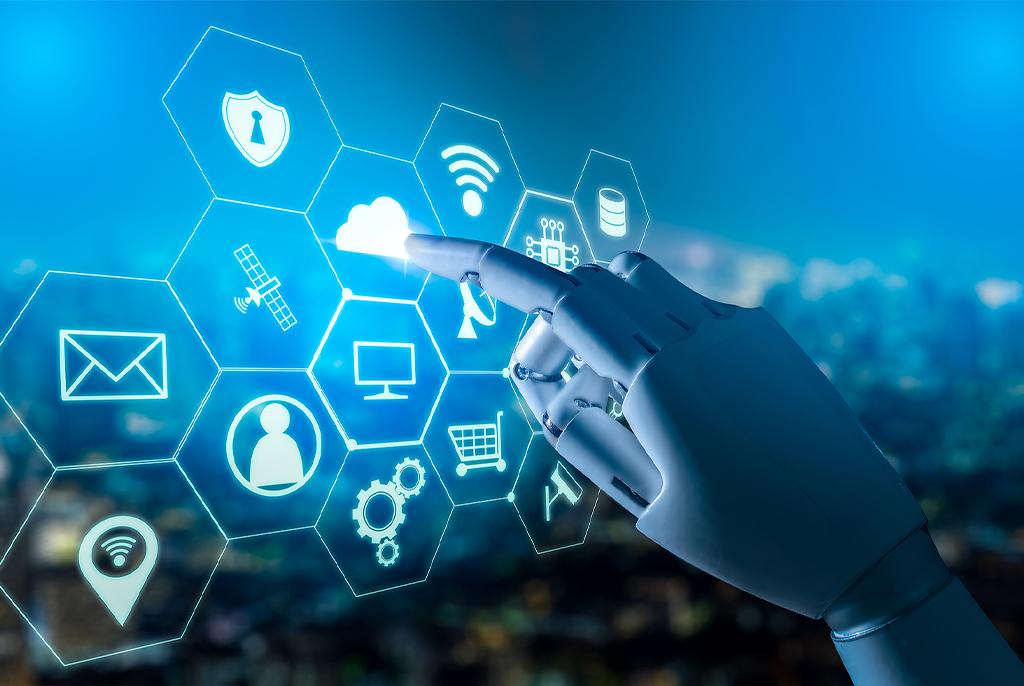Pros & Cons of Building Your Website With AI

Artificial intelligence has thus been very significant in the extremely growing and evolving world of web development. Starting from the automation of design through user experience, AI technologies open extraordinary opportunities for businesses to invent dynamic and engaging websites. However, building a website through AI brings with it an array of advantages and few challenges, which shall be addressed as we progress. In the following article, we are going to point out various advantages and disadvantages of using AI in website development and what this is going to mean for your business’s online face.
Pros of Building Your Website With AI
Speed and Efficiency
AI-powered tools can revolutionize the pace of website development. These tools automate tasks like coding, design layout, and content generation, freeing more of the mind to instead deal with the strategic features of the site. This speed comes not only with time-to-market advantages but also with improved efficiency in general project execution.
Personalized User Experience.
AI enables websites to offer personalized user experience in accordance with behavior, preferences, and demographics as expressed by the visiting base. With the help of machine learning algorithms in Artificial Intelligence, user data is analyzed on the go for purposes of changing content according to that and suggesting products that will make a difference because the suggestions personalize the interaction. Such a personalized user engagement boosts the user’s experience and thus conversion rates.
Improved User Interface (UI) and User Experience (UX)
Moreover, AI can further optimize the designs of UI/UX using the parsed user interaction patterns and feedback. It can create intuitive designs and make layout recommendations for better navigation and accessibility. This ensures a seamless and silky smooth browsing experience for the user—to retain visitors—since high bounce rates might bring a page down.
Creation and Optimization
AI-driven content tools create and optimize relevant web content, such as blog posts, product descriptions, and SEO metadata. NLP algorithms underpin these tools in facilitating relevancy and quality at scale, all taking care of consistency and SEO friendliness. This saves time while keeping content relevant and fresh.
Information Analytics and Insights
AI makes your website perform much better with advanced analytics and predictive insights. AI programming can chew through humongous data, interpret user behavior, track performance metrics, and even forecast trends. Such a data-driven approach empowers businesses in informed decisions, which look to further optimize marketing strategies and gain benefits by continually improving their website performance.
Cost Efficiency
It can save part of the cost in website development, as Artificial Intelligence will help to automate part of the procedure. That is, because of the reduction of manual works with AI implementation, as well as the streamlining of process flow, these companies are able to cut development cost but not quality standards. Moreover, the scaling strategy is a common trait in AI-based solutions; scaling according to needs is something scalable with growth in the business, which greatly reduces updates and maintenance carried out manually.
Drawbacks of Using AI to Build Your Website
Lack of Creativity and Originality
While AI is able to handle the repetitive nature of such tasks and data-driven decisions, it is often the case that real creative and original concepts of design do not come out of it. Many times, AI-generated designs and content lack the true human touch, as well as exclusive creativity that does resonate with the audience in a distinguished emotional manner. There still stands a thin line between where there is AI automation and human creativity to achieve that unique experience of a website.
Initial Investment and Learning Curve
AI applications in web development, as well, will require an initial investment in technology infrastructure, AI tools, and trained manpower. This may include, among other things, learning how to use AI, integrating AI with the existing system, and optimizing it to serve business goals as smoothly as possible. This sets up a barrier at the time of the required adaptation for up-front investment considerations to smaller businesses not heavily endowed with technology and illustratively in technical timelines.
Addressing Issues of Privacy and Security
AI-powered websites depend largely on proper data collection and analysis to fit user experiences and improve on functionality, among other factors. However, due to this high level of dependency, there arise issues to do with data privacy and security breaches, as well as regulation compliance. This brings the need for companies to protect user data effectively and be transparent about its use, developing privacy-aware services to help alleviate potential risk and build trust among users.
Dependency on AI Reliability
AI is therefore the most successful tool used for website design, contingent upon the accuracy and reliability possessed by these tools. AI algorithms tend to be defective in giving wrong results and may even misinterpret data—thereby bringing about design inconsistencies, poor user experience, or content quality. Those businesses that consistently depend on AI alone, without proper supervision, continue to compromise integrity and satisfaction with the websites presented to the users. Human troubles
Integrating AI with Human Expertise: The Way Forward
In a context where AI provides excellence in personalization, concerns can arise about how complex highly individualistic or customized needs will be catered to. These momentarily unique brands or extremely niche markets will raise questions about the ability of AI-generated solutions. Instances where the branding is really unique, niche markets are in use, or the user need is extremely precise, the AI-generated solutions might fail to cater to these requirements. At such times human intervention for personalization.
Integrating artificial intelligence with human expertise Though AI is already offering its share of consternation, it is the harbinger of a new wave—changing website development and taking the business result to the hyper-level. For this reason, organizations should always strive for a synergy between AI automation and human imagination and skills to reduce these drawbacks, at best. That synergy creates innovative design solutions, custom-made user experiences, and data-driven decisions to increase growth and competitiveness.
Conclusion
In summary, Hire the best website development agency to lift your business to newer heights work to push your business to better heights has persuasive benefits in terms of speed, efficiency, personalization, and knowledge-based insights. However, businesses need to tread carefully in weighing these benefits vis-à-vis some likely downsides of limitations in creativity, upfront investment, challenges raised with data privacy, issues of reliability, and customization limitations. Hence, when businesses understand both the advantageous and disadvantageous aspects of using AI in website design work, a well-balanced approach can be taken to use AI effectively in a way that results in energetic, highly engaging, and competing websites that enrich the businesses’ online presence.











